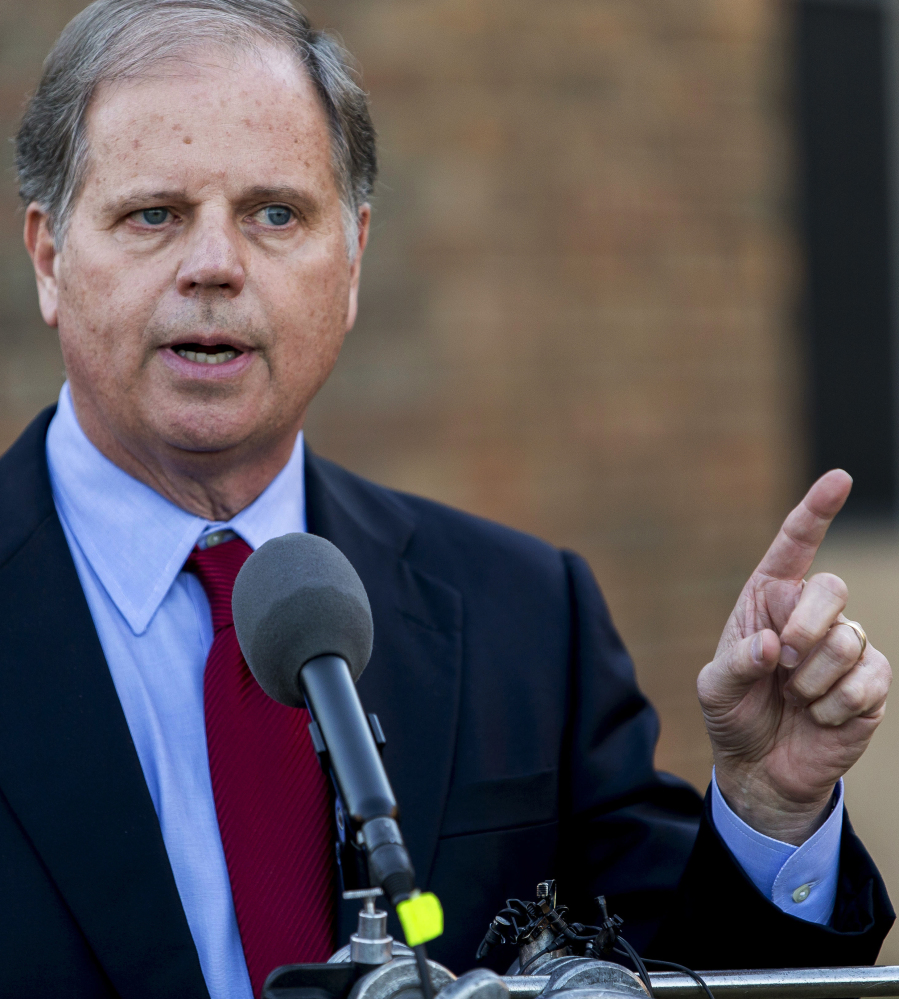BIRMINGHAM, Ala. — Renegade Republican Roy Moore may be plagued by scandal, but it will take more than that to convince the voters of 44th Place North to show up for Democrat Doug Jones on Tuesday.
In a state where Democrats are used to losing, the malaise is easy to find in this African-American neighborhood in suburban Birmingham, even on the final weekend before Alabama’s high-profile Senate contest.
“A lot of people don’t vote because they think their vote don’t count,” Ebonique Jiles, 27, said after promising a Jones volunteer she would support the Democrat in Tuesday’s election. “I’ll vote regardless of whether he wins or loses.”
With history and math working against them in deep-red Alabama, Democrats are fighting to energize a winning coalition of African-Americans and moderate Republicans – a delicate balancing act on full display on Saturday as Jones and his network of volunteers canvassed the state. Even if Jones wins on Tuesday, many Democrats expect the GOP to re-claim the seat when the term expires at the end of 2020. Beneath Jones’ biracial and bipartisan balancing act is a complex numbers game that has vexed Alabama Democrats for decades.
The party’s core of black voters and white liberals – plus a smidgen of old-guard, more conservative “Southern Democrats” who’ve held on amid the region’s partisan shift – is worth no more than 40 percent in statewide elections. That’s been true in high-turnout elections, with former President Barack Obama twice landing between 38 and 39 percent, and the most recent governor’s race in 2014, when the Democratic nominee pulled just 36 percent.
African-Americans make up about 25 percent of eligible voters, though Democratic pollster Zac McCrary said Jones needs black voters to comprise 27 percent or more of those who show up at the polls on Tuesday. Jones then needs to win one in three white voters in the state, which would require capturing about 15 percent of Republicans, McCrary said.
On the ground in Alabama on Saturday, Jones dispatched hundreds of volunteers across the state to knock on doors to identify likely supporters in neighborhoods that featured high concentrations of African-Americans and Republicans who supported Moore’s GOP primary opponent, current Sen. Luther Strange.
Copy the Story LinkSend questions/comments to the editors.




Success. Please wait for the page to reload. If the page does not reload within 5 seconds, please refresh the page.
Enter your email and password to access comments.
Hi, to comment on stories you must . This profile is in addition to your subscription and website login.
Already have a commenting profile? .
Invalid username/password.
Please check your email to confirm and complete your registration.
Only subscribers are eligible to post comments. Please subscribe or login first for digital access. Here’s why.
Use the form below to reset your password. When you've submitted your account email, we will send an email with a reset code.